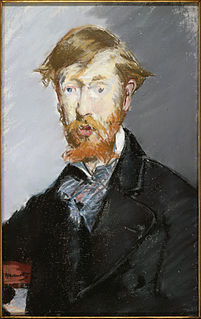A Quote by Timothy Radcliffe
I believe that my own Christian faith does indeed make universal claims.
Related Quotes
A living faith is always on trial; we call it faith for that reason. When I read in some alarmist book that the Christian faith is now on trial, or "at the crossroads," my impulse is to answer, Why Not? Does anybody know a time when the Christian faith was not on trial, or when the Christian life was a simple walkover, with neither principalities nor powers to dispute its advance?
Christian faith does not involve repressing one's anxiety in order to appear strong. On the contrary, it means recognizing one's weakness, accepting the inward truth about oneself, confessing one's anxiety, and still to believe, that is to say that the Christian puts his trust not in his own strength, but in the grace of God.
If the errors of my life have profited me one great truth it is this: believe. Believe in your destiny and the star from which it shines. Believe you have been sent from God as an arrow pulled from his own bow. It is the single universal trait which the great of this earth have all shared, while the shadows are fraught with ghosts who roam the winds with mournful wails of regret on their lips. Believe as if your life depended upon it, for indeed it does.
I firmly believe that all we send into the lives of other does indeed come back into our own. I also believe that Christmas is that wondrous time of year when each of us renews our faith that a better world is possible. By trying to live Christmas 12 months a year, we CAN make this world a better place to live - for others and for ourselves.
Creflo Dollar is compromising, confusing or outright contradicting essential Christian doctrine. Joel Osteen does exactly the same thing. Now, not necessarily the exact same doctrines, but he is compromising, confusing or contradicting essential Christian doctrine. Their view of faith is a force, words are the containers of the force, and through the force of faith, one can create his or her own reality. That's not biblical faith. That's a false faith, or faith that doesn't satisfy and ultimately will lead people into harm's way.
The leap of faith is a strategic impasse that confronts every Christian in search of converts; and, as he sees the matter, there is no wrong way to become a Christian. It is the end that is importnat, not the means; it does not matter why you believe, so long as you believe. For the philosopher, in contrast, the paramount issue is the justification of belief, not the fact of belief itself.
Faith in ourselves will do everything. I have experienced it in my own life, and am still doing so; and as I grow older that faith is becoming stronger and stronger. He is an atheist who does not believe in himself. The old religions said that he was an atheist who did not believe in God. The new religion says that he is the atheist who does not believe in himself
If I did not believe, if I did not make what is called an act of faith (and each act of faith increases our faith, and our capacity for faith), if I did not have faith that the works of mercy do lighten the sum total of suffering in the world, so that those who are suffering on both sides of this ghastly struggle somehow mysteriously find their pain lifted and some balm of consolation poured on their wounds, if I did not believe these things, the problem of evil would indeed be overwhelming.
Christian faith is exclusivistic. Christian faith lays claim upon our lives. The sanctity of life, what we do with a life, is very definitive in the Christian faith, what we do with sexuality, what we do with marriage, all of the fundamental questions of life have points of reference for answers, and people just have an aversion for that. That I think is the biggest reason they feel hostile towards the Christian faith.
We recognize a tree by its fruit, and we ought to be able to recognize a Christian by his action. The fruit of faith should be evident in our lives, for being a Christian is more than making sound professions of faith. It should reveal itself in practical and visible ways. Indeed it is better to keep quiet about our beliefs, and live them out, than to talk eloquently about what we believe, but fail to live by it.




































